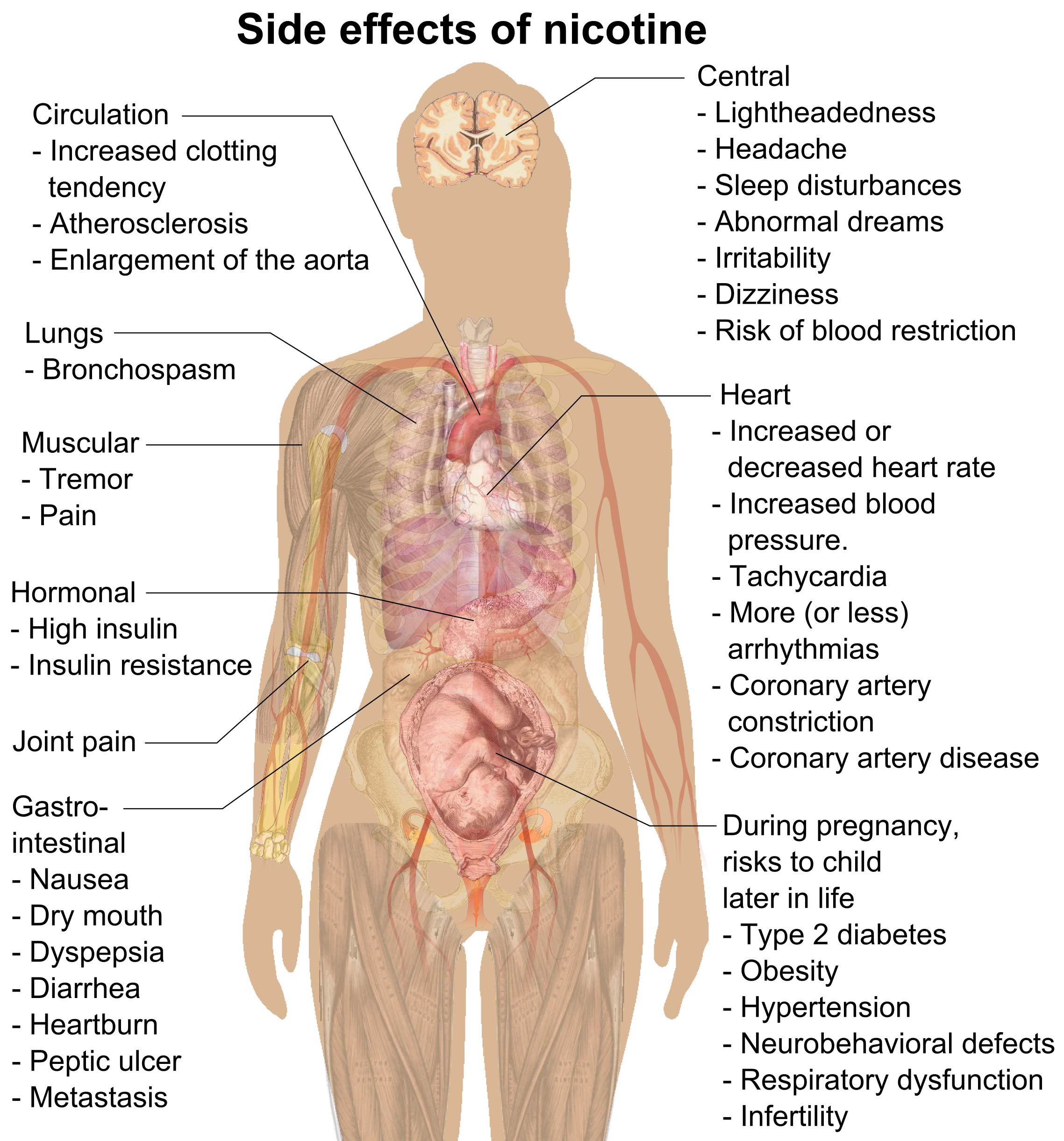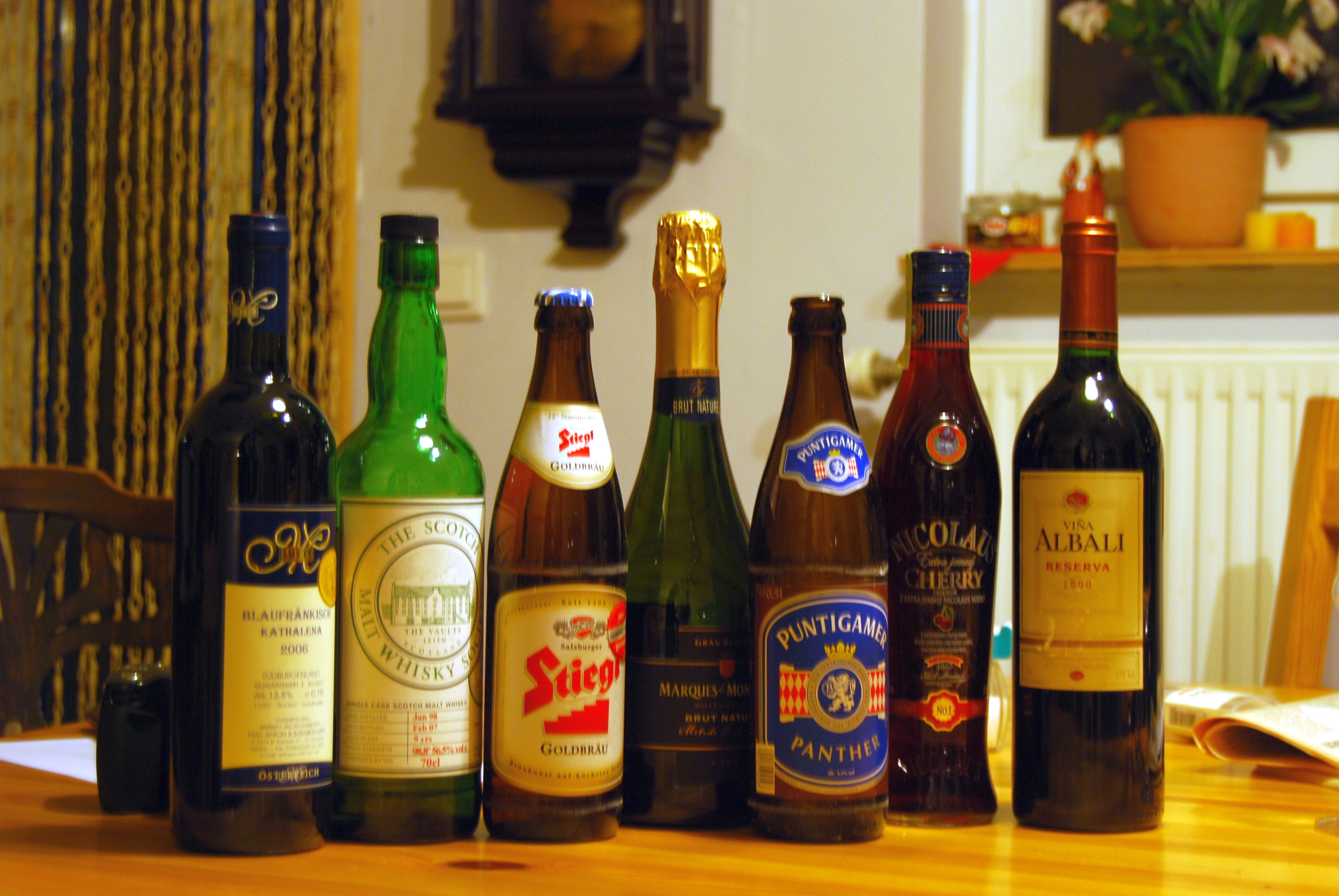|
Legal Drug Trade
Legal drug trade, as with other goods object of commerce, in opposition to smuggling or ''illegal'' drug trade, most psychotropic substances' commerce is under control and taxation by world governments, regardless of the relative perceived danger of the goods that are the object of legislation. Legal commerce in drugs can be categorized according to the purpose of consumption (therapeutic vs recreational), type of drug involved and phase of the trading process, i.e.: production, distribution or consumption. Therapeutic use Production Drugs useful for treating diseases are the object of pharmaceutical research and medical practice, and produced by the pharmaceutical industry, which in theory should be above United Nations legislation prohibiting use or sole possession of the drugs termed illegal for other purposes. Distribution Pharmaceutical companies, through authorized dealers, guarantee the distribution of their products to their customers. Since antiqu ... [...More Info...] [...Related Items...] OR: [Wikipedia] [Google] [Baidu] |
Good (economics)
In economics, goods are items that satisfy human wants and provide utility, for example, to a consumer making a purchase of a satisfying Product (business), product. A common distinction is made between goods which are transferable, and Service (economics), services, which are not transferable. A good is an "economic good" if it is useful to people but scarcity, scarce in relation to its demand so that human effort is required to obtain it.Samuelson, P. Anthony., Samuelson, W. (1980). Economics. 11th ed. / New York: McGraw-Hill. In contrast, free goods, such as air, are naturally in abundant supply and need no conscious effort to obtain them. Private goods are things owned by people, such as Television, televisions, living room furniture, wallets, cellular telephones, almost anything owned or used on a daily basis that is not food-related. A consumer good or "final good" is any item that is ultimately consumed, rather than used in the production of another good. For example, ... [...More Info...] [...Related Items...] OR: [Wikipedia] [Google] [Baidu] |
United Nations
The United Nations (UN) is an intergovernmental organization whose stated purposes are to maintain international peace and international security, security, develop friendly relations among nations, achieve international cooperation, and be a centre for harmonizing the actions of nations. It is the world's largest and most familiar international organization. The UN is headquarters of the United Nations, headquartered on extraterritoriality, international territory in New York City, and has other main offices in United Nations Office at Geneva, Geneva, United Nations Office at Nairobi, Nairobi, United Nations Office at Vienna, Vienna, and Peace Palace, The Hague (home to the International Court of Justice). The UN was established after World War II with Dumbarton Oaks Conference, the aim of preventing future world wars, succeeding the League of Nations, which was characterized as ineffective. On 25 April 1945, 50 governments met in San Francisco for United Nations Conference ... [...More Info...] [...Related Items...] OR: [Wikipedia] [Google] [Baidu] |
Tobacco Industry
The tobacco industry comprises those persons and companies who are engaged in the growth, preparation for sale, shipment, advertisement, and distribution of tobacco and tobacco-related products. It is a global industry; tobacco can grow in any warm, moist environment, which means it can be farmed on all continents except Antarctica. According to the WHO Framework Convention on Tobacco Control, the "tobacco industry" encompasses tobacco manufacturers, wholesale distributors and importers of tobacco products. This evidence-based treaty expects its 181 ratified member states to implement public health policies with respect to tobacco control "to protect present and future generations from the devastating health, social, environmental and economic consequences of tobacco consumption and exposure to tobacco smoke." Tobacco, one of the most widely used addictive substances in the world, is a plant native to the Americas and historically one of the most important crops grown by Ameri ... [...More Info...] [...Related Items...] OR: [Wikipedia] [Google] [Baidu] |
Nicotine
Nicotine is a naturally produced alkaloid in the nightshade family of plants (most predominantly in tobacco and ''Duboisia hopwoodii'') and is widely used recreationally as a stimulant and anxiolytic. As a pharmaceutical drug, it is used for smoking cessation to relieve withdrawal symptoms. Nicotine acts as a receptor agonist at most nicotinic acetylcholine receptors (nAChRs), except at two nicotinic receptor subunits (nAChRα9 and nAChRα10) where it acts as a receptor antagonist. Nicotine constitutes approximately 0.6–3.0% of the dry weight of tobacco. Nicotine is also present at ppb-concentrations in edible plants in the family Solanaceae, including potatoes, tomatoes, and eggplants, though sources disagree on whether this has any biological significance to human consumers. It functions as an antiherbivore toxin; consequently, nicotine was widely used as an insecticide in the past, and neonicotinoids (structurally similar to nicotine), such as imidacloprid, are s ... [...More Info...] [...Related Items...] OR: [Wikipedia] [Google] [Baidu] |
Recreational Drugs
Recreation is an activity of leisure, leisure being discretionary time. The "need to do something for recreation" is an essential element of human biology and psychology. Recreational activities are often done for enjoyment, amusement, or pleasure and are considered to be "fun". Etymology The term ''recreation'' appears to have been used in English first in the late 14th century, first in the sense of "refreshment or curing of a sick person", and derived turn from Latin (''re'': "again", ''creare'': "to create, bring forth, beget"). Prerequisites to leisure People spend their time on activities of daily living, work, sleep, social duties and leisure, the latter time being free from prior commitments to physiologic or social needs, a prerequisite of recreation. Leisure has increased with increased longevity and, for many, with decreased hours spent for physical and economic survival, yet others argue that time pressure has increased for modern people, as they are committed to too ... [...More Info...] [...Related Items...] OR: [Wikipedia] [Google] [Baidu] |
Tobacco
Tobacco is the common name of several plants in the genus '' Nicotiana'' of the family Solanaceae, and the general term for any product prepared from the cured leaves of these plants. More than 70 species of tobacco are known, but the chief commercial crop is ''N. tabacum''. The more potent variant ''N. rustica'' is also used in some countries. Dried tobacco leaves are mainly used for smoking in cigarettes and cigars, as well as pipes and shishas. They can also be consumed as snuff, chewing tobacco, dipping tobacco, and snus. Tobacco contains the highly addictive stimulant alkaloid nicotine as well as harmala alkaloids. Tobacco use is a cause or risk factor for many deadly diseases, especially those affecting the heart, liver, and lungs, as well as many cancers. In 2008, the World Health Organization named tobacco use as the world's single greatest preventable cause of death. Etymology The English word ''tobacco'' originates from the Spanish word "tabaco ... [...More Info...] [...Related Items...] OR: [Wikipedia] [Google] [Baidu] |
Legal Drinking Age
The legal drinking age is the minimum age at which a person can legally consume alcoholic beverages. The minimum age alcohol can be legally consumed can be different from the age when it can be purchased in some countries. These laws vary between countries and many laws have exemptions or special circumstances. Most laws apply only to drinking alcohol in public places with alcohol consumption in the home being mostly unregulated (an exception being the UK, which has a minimum legal age of five for supervised consumption in private places). Some countries also have different age limits for different types of alcohol drinks. The majority of countries have a minimum legal drinking age of 18. The most commonly known reason for the law behind the legal drinking age is the effect on the brain in adolescents. Since the brain is still maturing, alcohol can have a negative effect on the memory and long-term thinking. Alongside that, it can cause liver failure, and create a hormone imb ... [...More Info...] [...Related Items...] OR: [Wikipedia] [Google] [Baidu] |
Alcohol Industry
The alcohol industry is the segment of the commercial drink industry that is involved in the manufacturing, distribution, and sale of alcoholic beverages. Criticism The industry has been criticised in the 1990s for deflecting attention away from the problems associated with alcohol use. The alcohol industry has also been criticised for being unhelpful in reducing the harm of alcohol. The World Bank works with and invests in alcohol industry projects when positive effects with regard to public health concerns and social policy are demonstrated. Alcohol industry-sponsored education to reduce the harm of alcohol, actually results in an increase in the harm of alcohol. As a result, it has been recommended that the alcohol industry does not become involved in alcohol policy or educational programs. In the United Kingdom, the New Labour government took the view that working with the alcohol industry to reduce harm was the most effective strategy. However, alcohol-related harms and alcoh ... [...More Info...] [...Related Items...] OR: [Wikipedia] [Google] [Baidu] |
Ethyl Alcohol
Ethanol (abbr. EtOH; also called ethyl alcohol, grain alcohol, drinking alcohol, or simply alcohol) is an organic compound. It is an alcohol with the chemical formula . Its formula can be also written as or (an ethyl group linked to a hydroxyl group). Ethanol is a volatile, flammable, colorless liquid with a characteristic wine-like odor and pungent taste. It is a psychoactive recreational drug, the active ingredient in alcoholic drinks. Ethanol is naturally produced by the fermentation process of sugars by yeasts or via petrochemical processes such as ethylene hydration. It has medical applications as an antiseptic and disinfectant. It is used as a chemical solvent and in the synthesis of organic compounds, and as a fuel source. Ethanol also can be dehydrated to make ethylene, an important chemical feedstock. As of 2006, world production of ethanol was , coming mostly from Brazil and the U.S. Etymology ''Ethanol'' is the systematic name defined by the International Un ... [...More Info...] [...Related Items...] OR: [Wikipedia] [Google] [Baidu] |
Alcoholic Beverage
An alcoholic beverage (also called an alcoholic drink, adult beverage, or a drink) is a drink that contains ethanol, a type of alcohol that acts as a drug and is produced by fermentation of grains, fruits, or other sources of sugar. The consumption of alcoholic drinks, often referred to as "drinking", plays an important social role in many cultures. Most countries have laws regulating the production, sale, and consumption of alcoholic beverages. Regulations may require the labeling of the percentage alcohol content (as ABV or proof) and the use of a warning label. Some countries ban such activities entirely, but alcoholic drinks are legal in most parts of the world. The global alcoholic drink industry exceeded $1 trillion in 2018. Alcohol is a depressant, which in low doses causes euphoria, reduces anxiety, and increases sociability. In higher doses, it causes drunkenness, stupor, unconsciousness, or death. Long-term use can lead to an alcohol use disorder, an incre ... [...More Info...] [...Related Items...] OR: [Wikipedia] [Google] [Baidu] |
Inpatient Care
Inpatient care is the care of patients whose condition requires admission to a hospital. Progress in modern medicine and the advent of comprehensive out-patient clinics ensure that patients are only admitted to a hospital when they are extremely ill or have severe physical trauma. Progress Patients enter inpatient care mainly from previous ambulatory care such as referral from a family doctor, or through emergency medicine departments. The patient formally becomes an "inpatient" at the writing of an admission note. Likewise, it is formally ended by writing a discharge note. Planning for patient discharge Health care professionals involved in rehabilitation are often involved in discharge planning for patients. When considering patient discharge, there are a number of factors to take into consideration: the patient's current state, their place of residence and the type of support available. When considering the patient's current state, although the patient may be eligible for dis ... [...More Info...] [...Related Items...] OR: [Wikipedia] [Google] [Baidu] |
Outpatient
A patient is any recipient of health care services that are performed by healthcare professionals. The patient is most often ill or injured and in need of treatment by a physician, nurse, optometrist, dentist, veterinarian, or other health care provider. Etymology The word patient originally meant 'one who suffers'. This English noun comes from the Latin word ', the present participle of the deponent verb, ', meaning 'I am suffering,' and akin to the Greek verb (', to suffer) and its cognate noun (). This language has been construed as meaning that the role of patients is to passively accept and tolerate the suffering and treatments prescribed by the healthcare providers, without engaging in shared decision-making about their care. Outpatients and inpatients An outpatient (or out-patient) is a patient who attends an outpatient clinic with no plan to stay beyond the duration of the visit. Even if the patient will not be formally admitted with a note as an outpatient, the ... [...More Info...] [...Related Items...] OR: [Wikipedia] [Google] [Baidu] |








